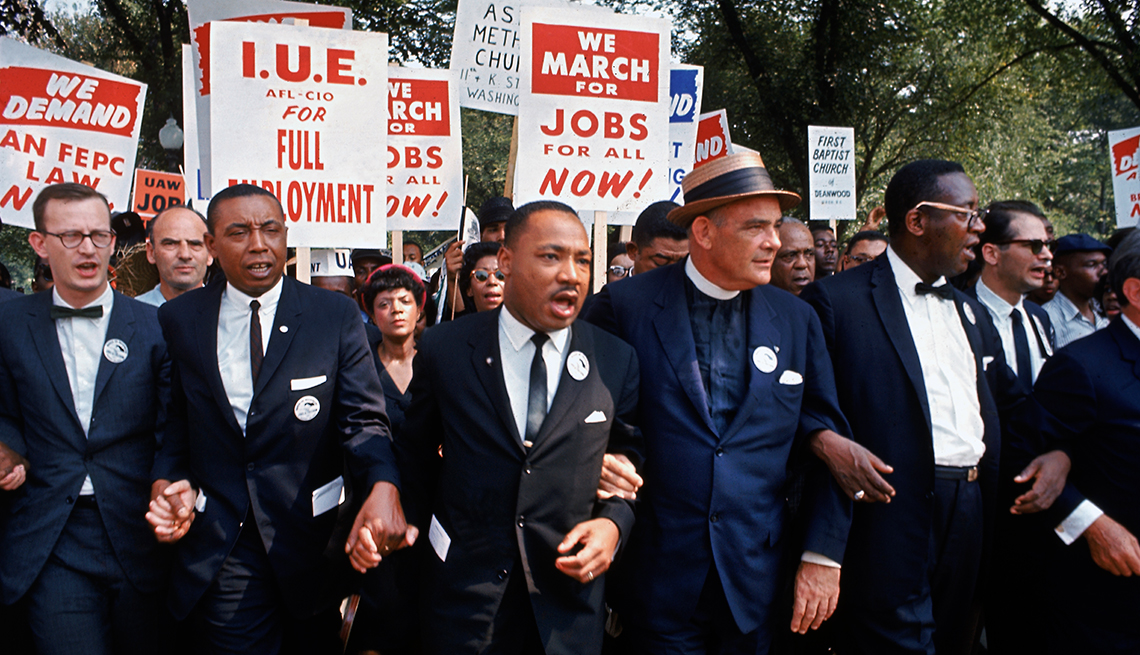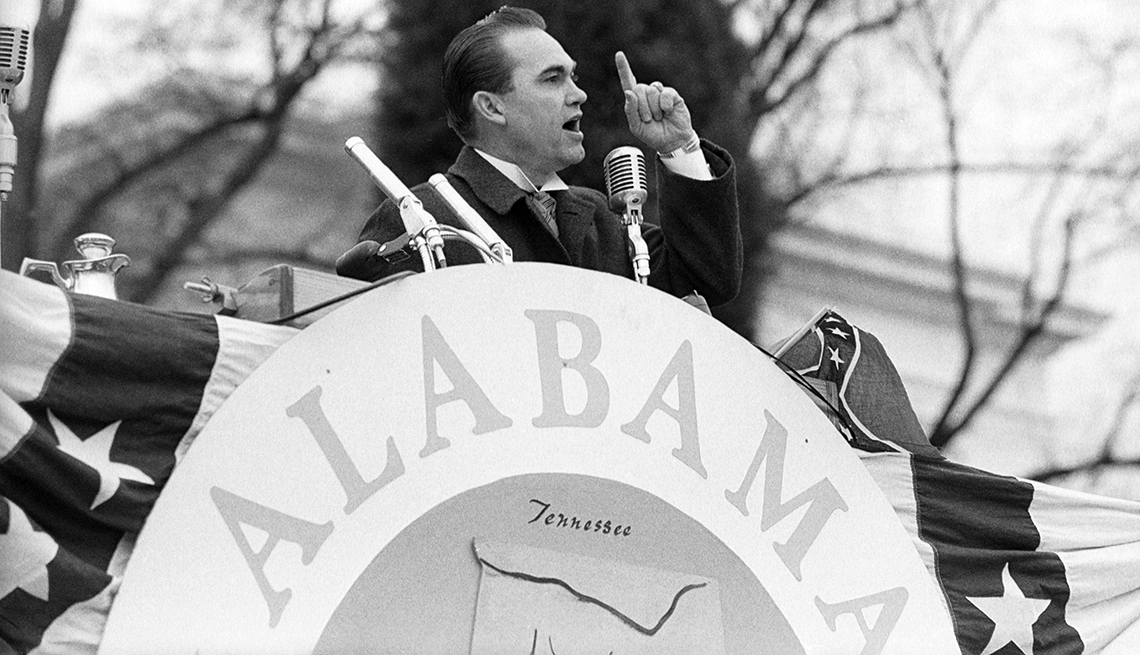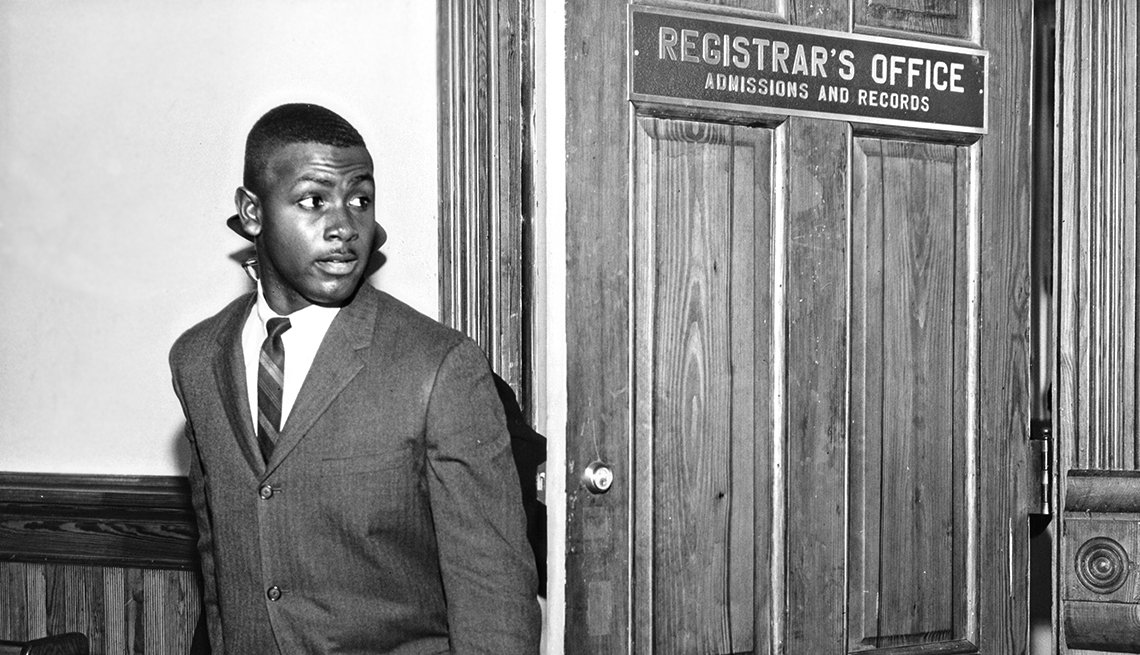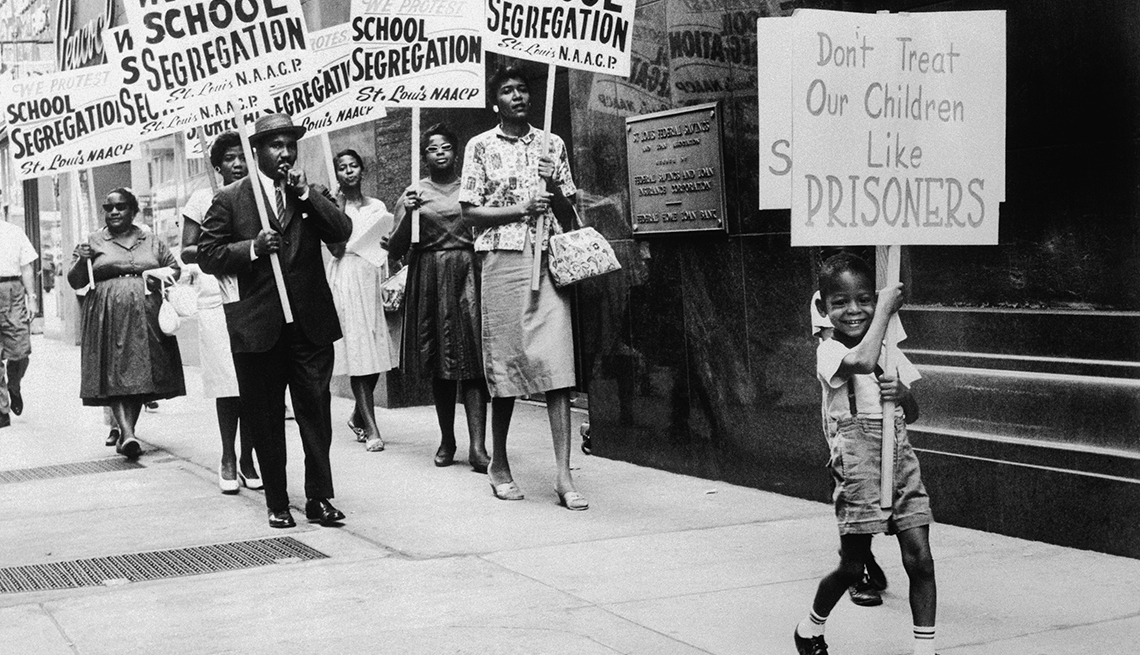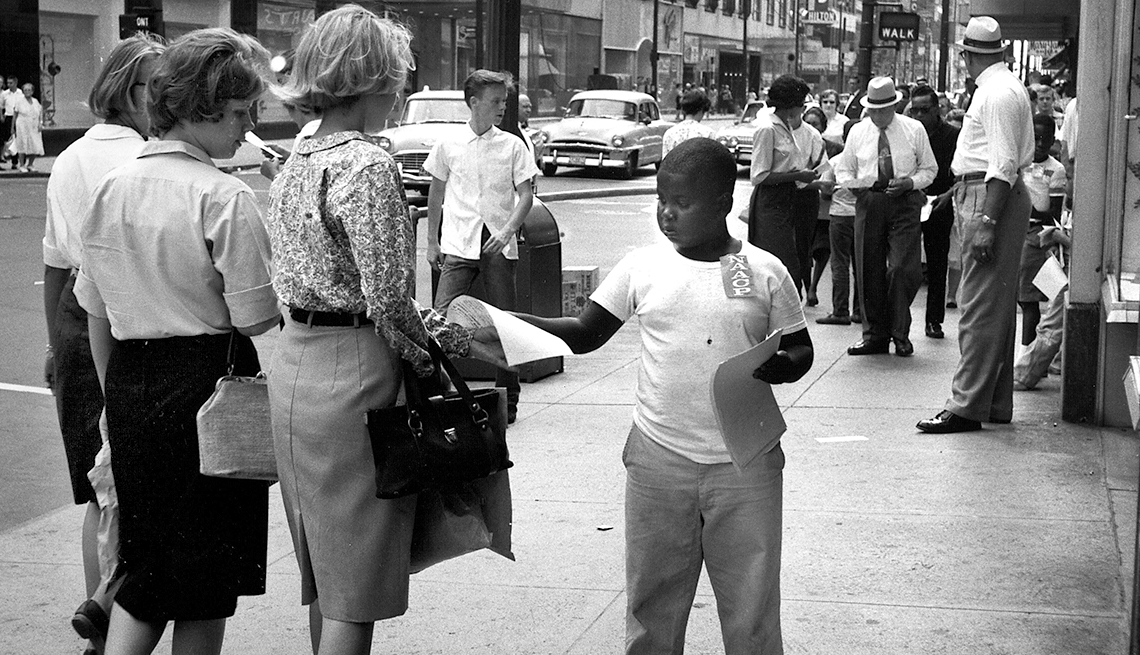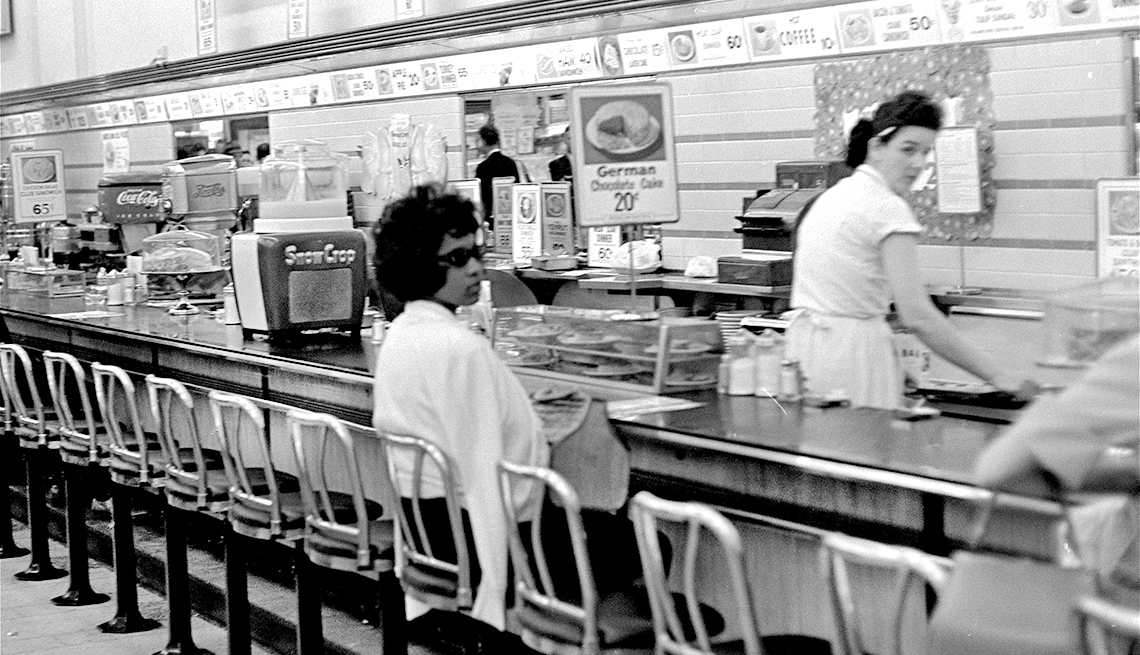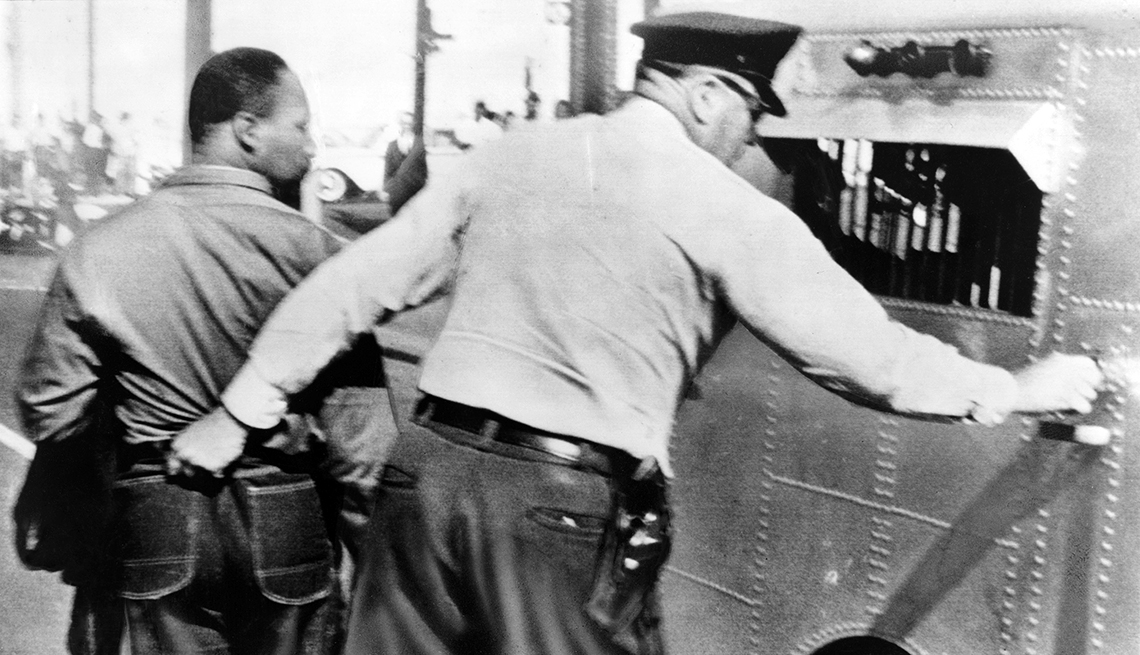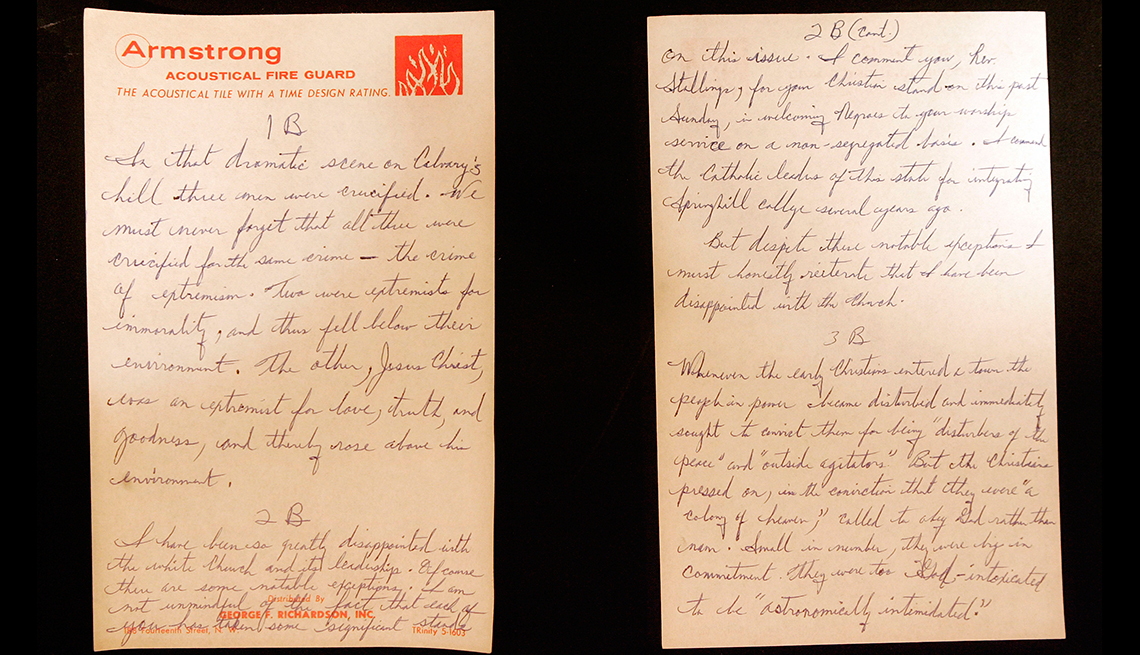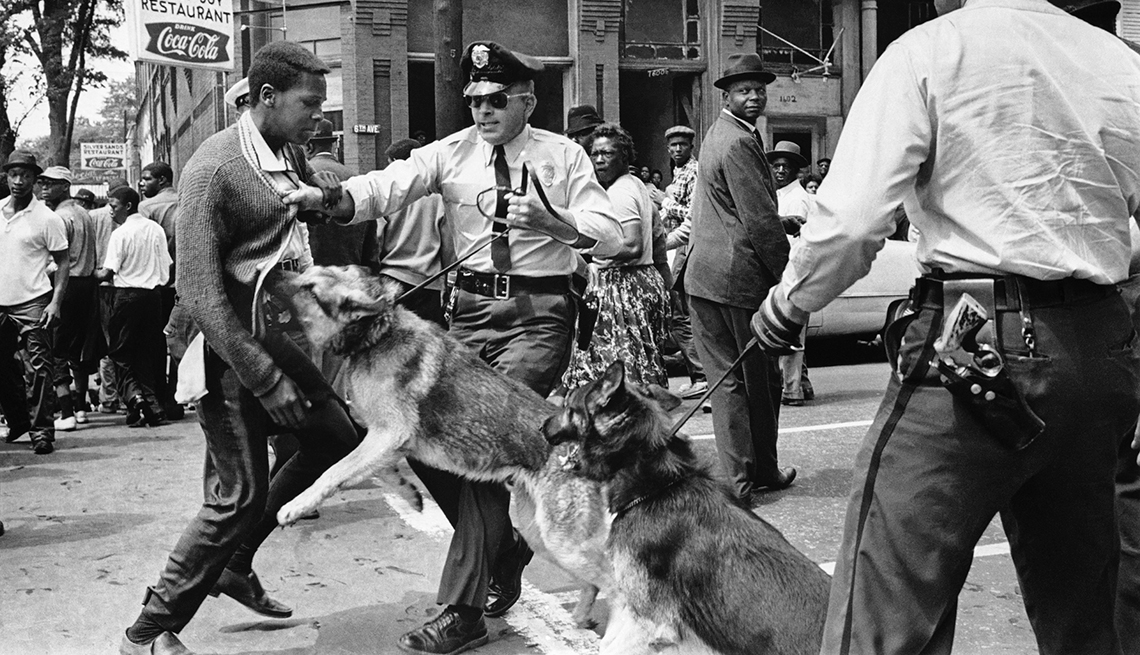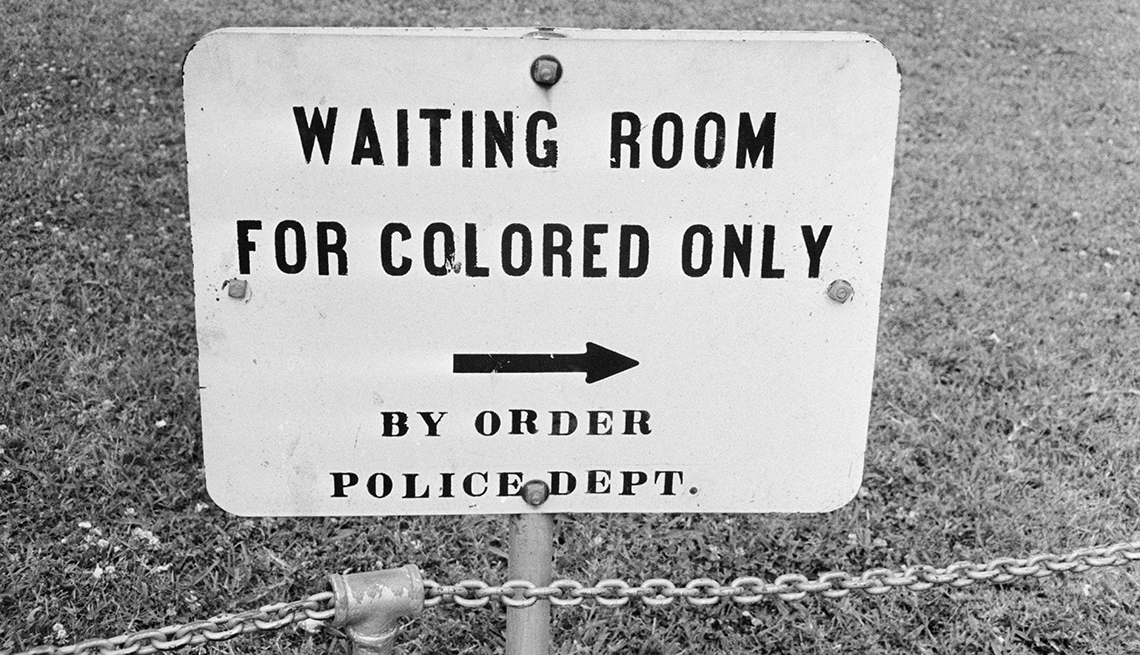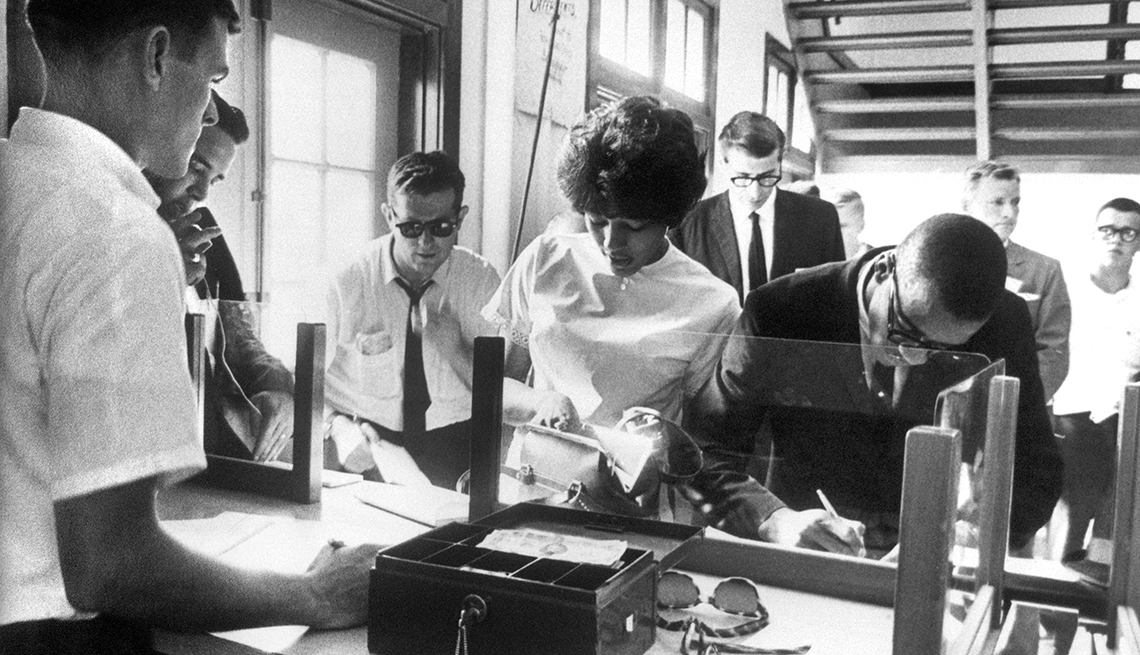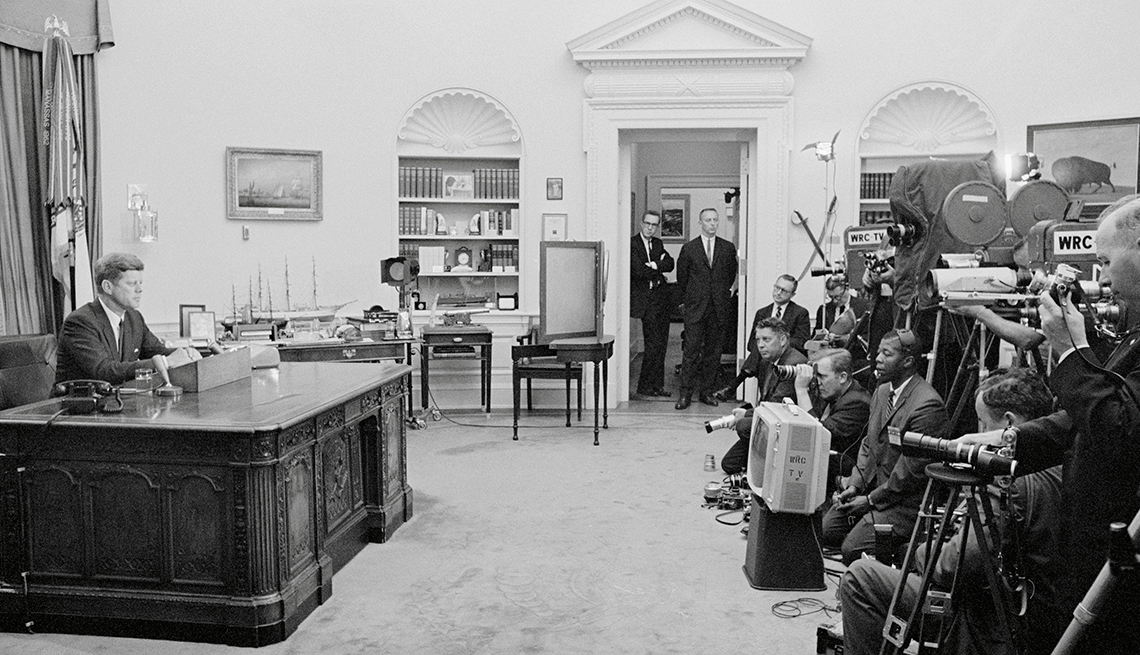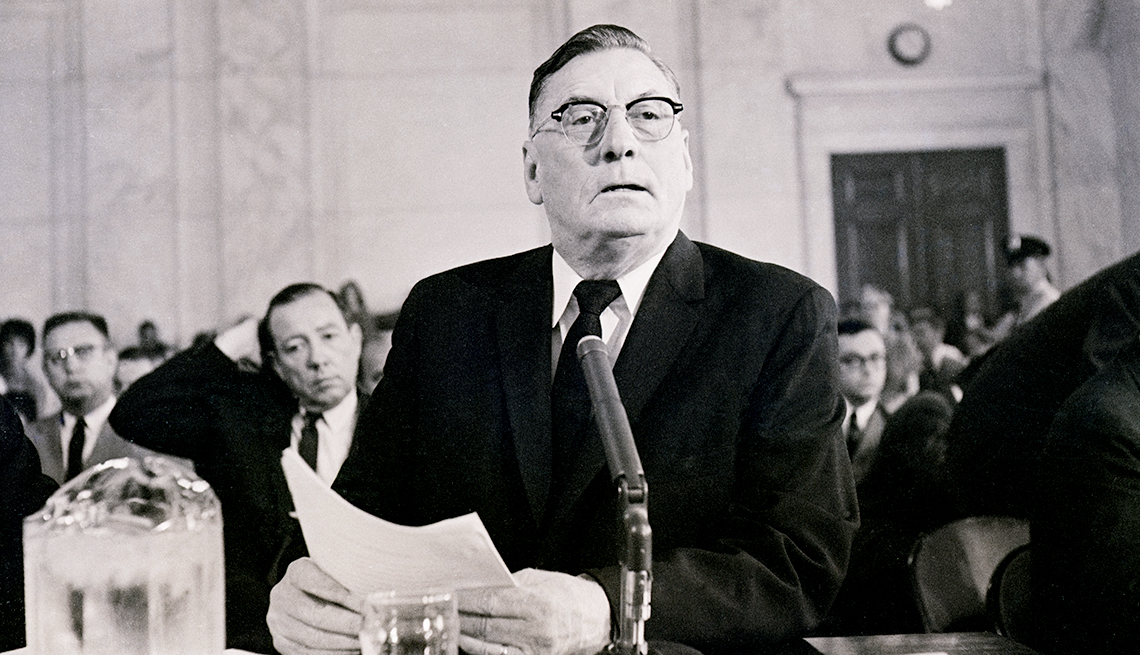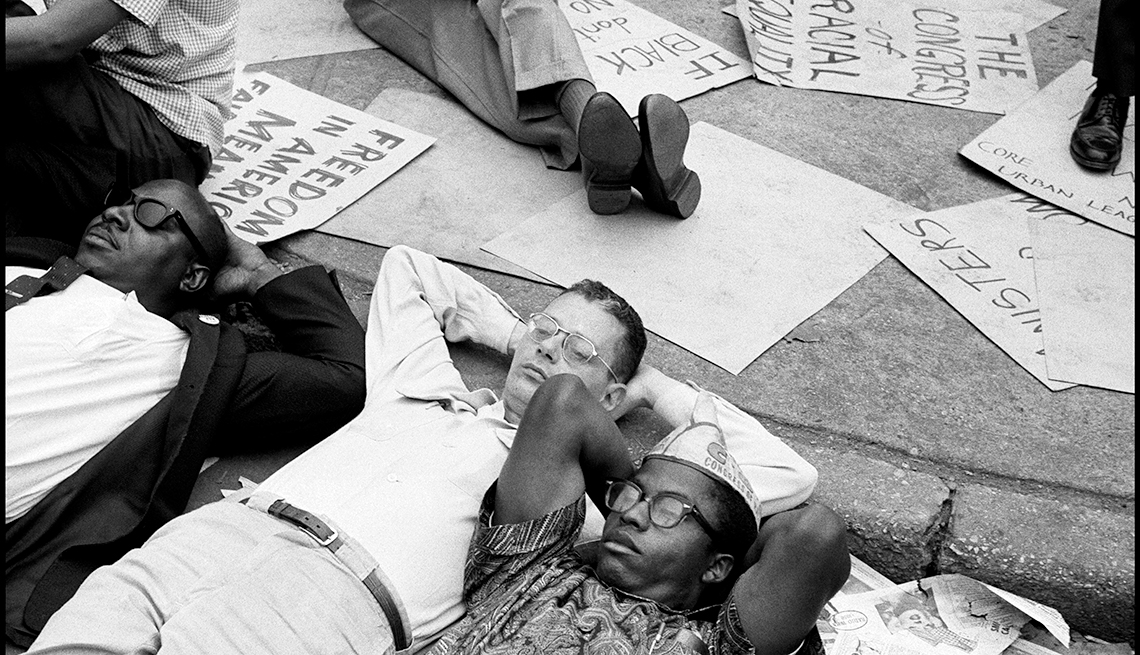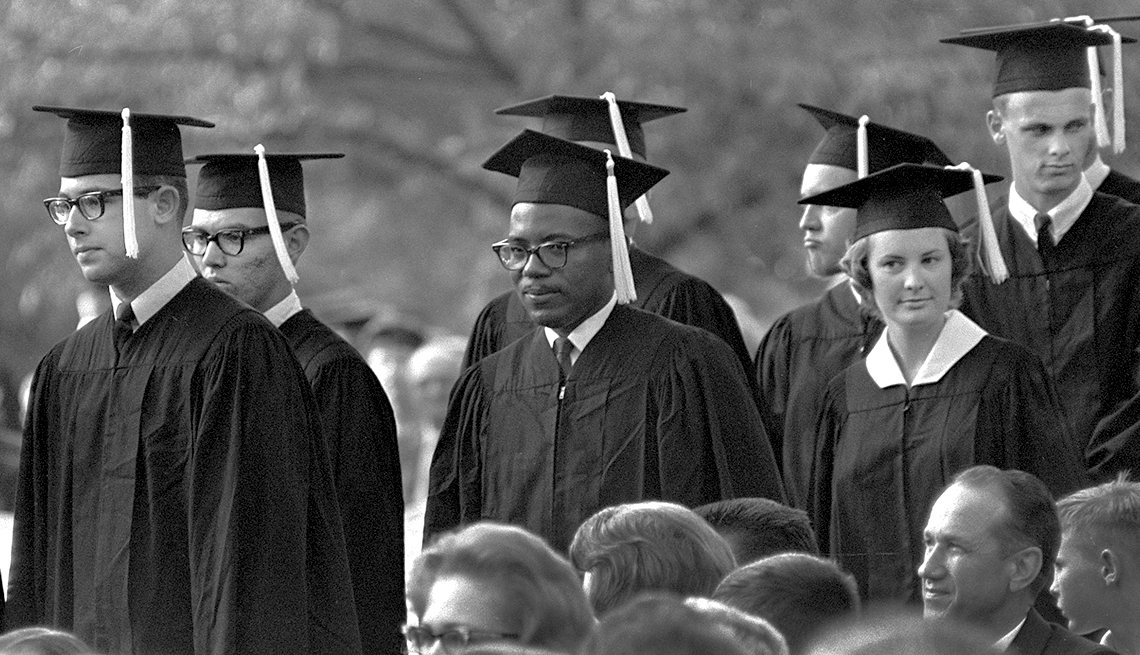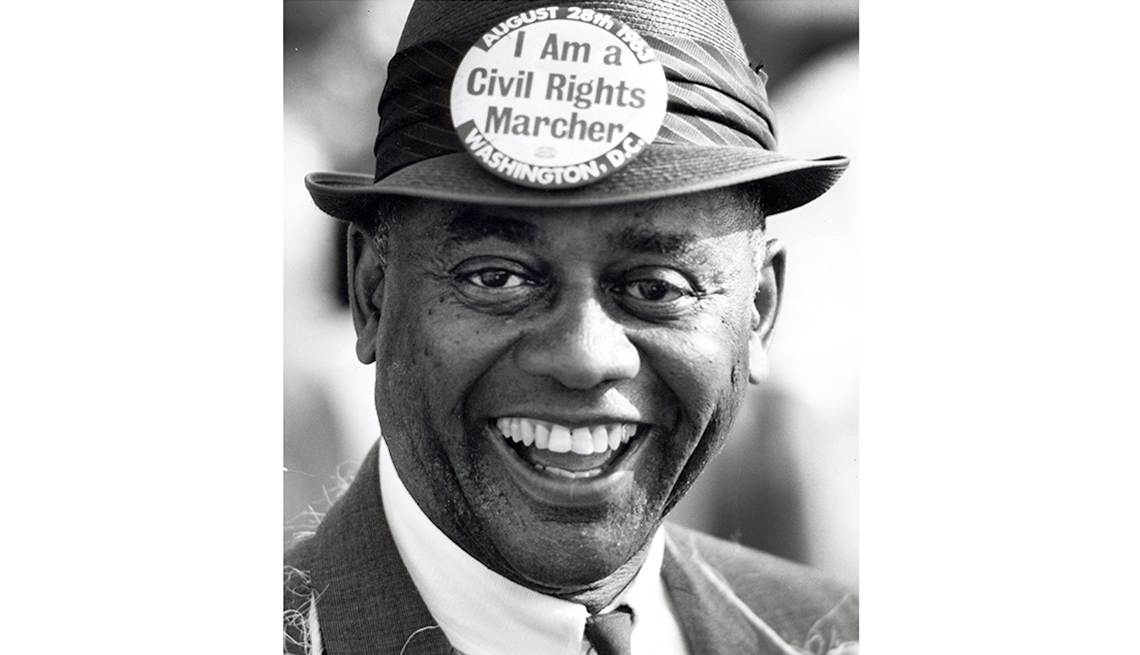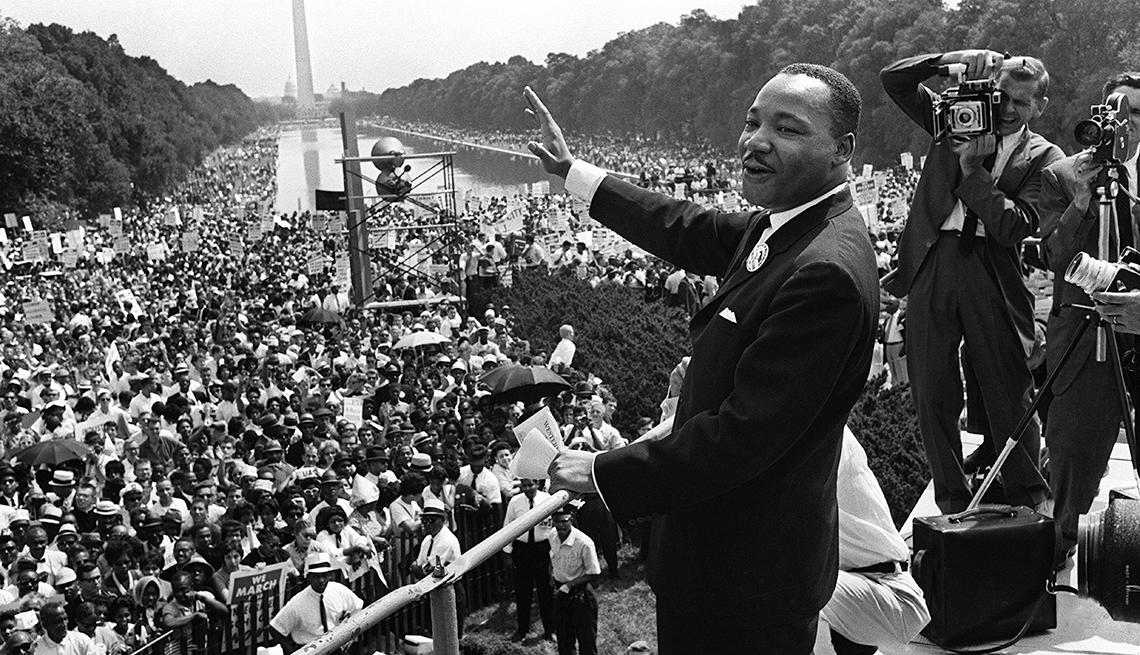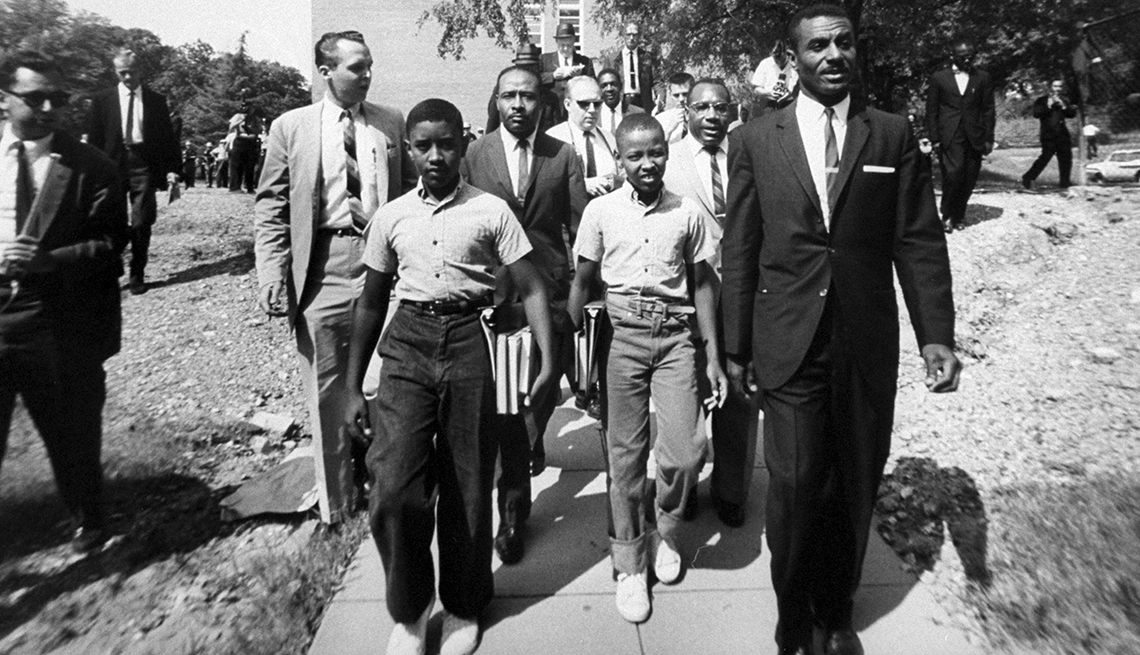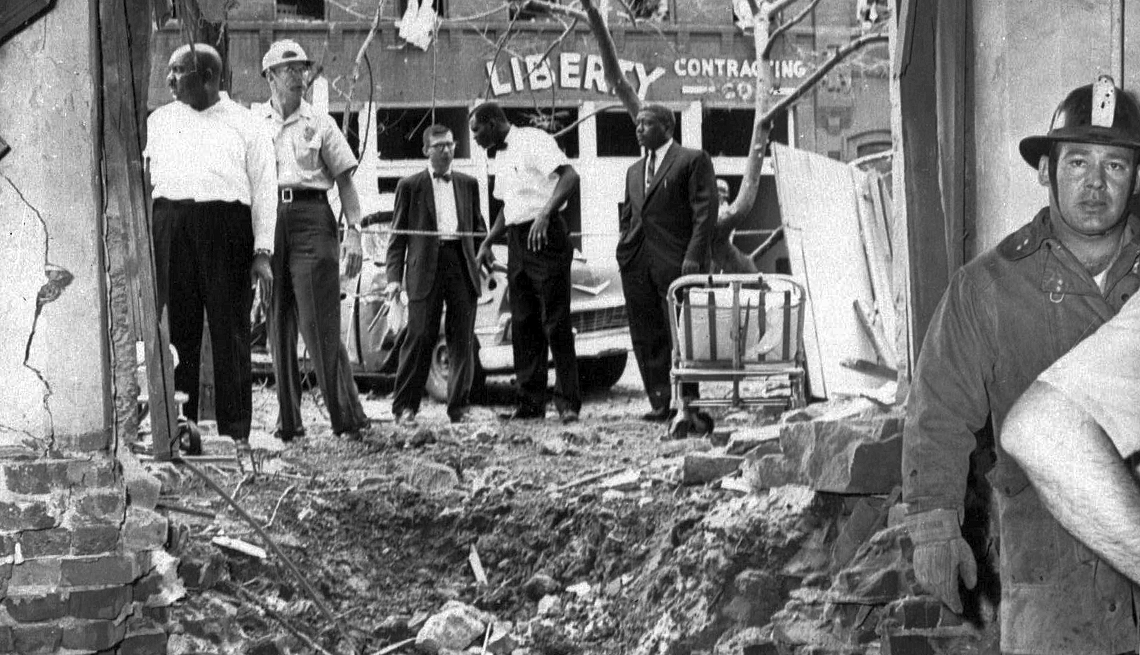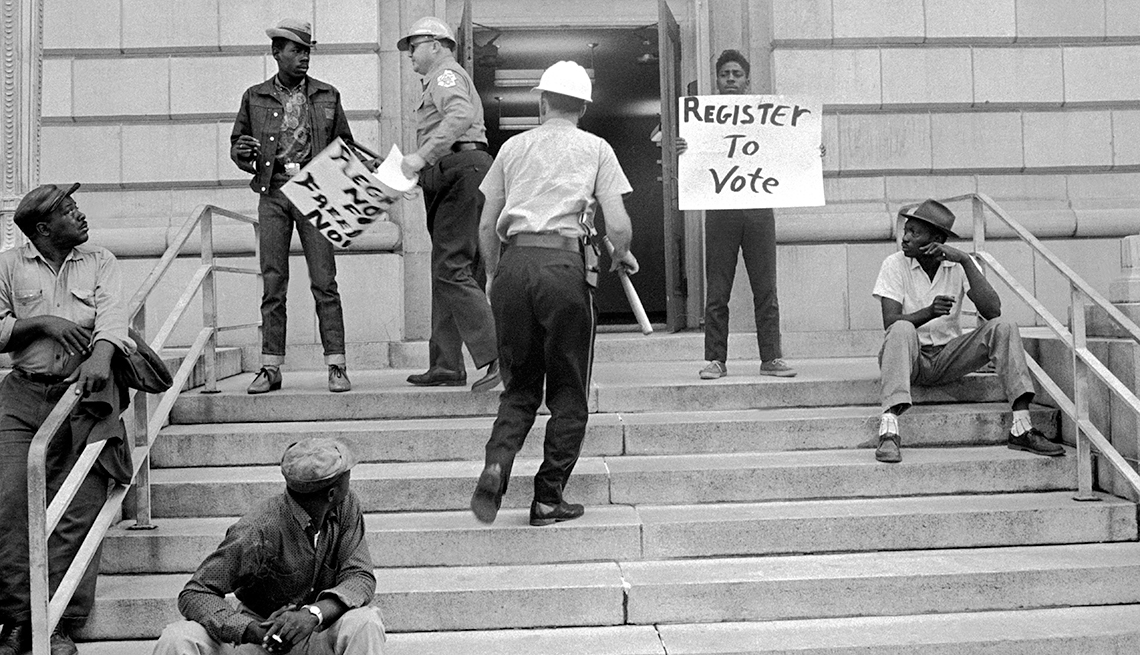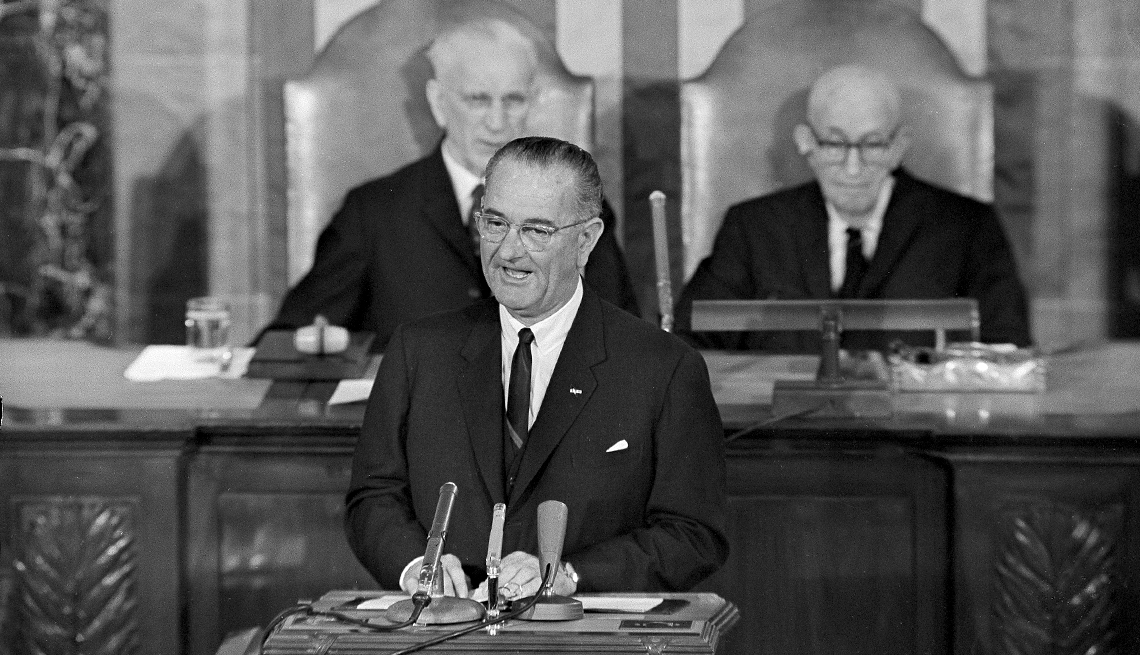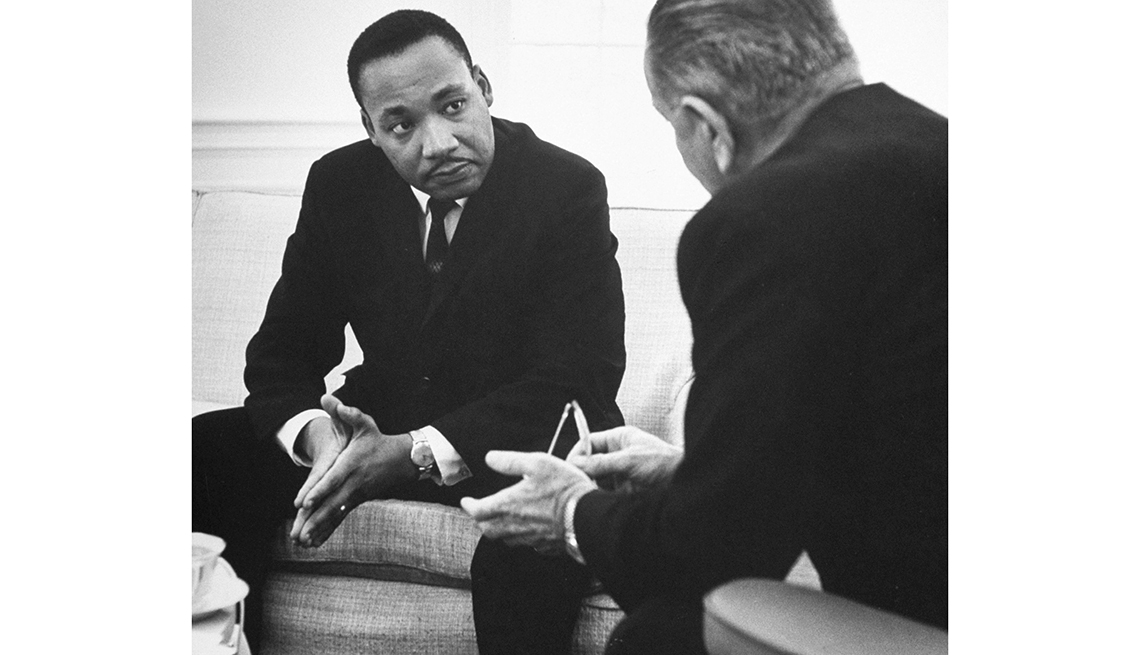1963 Retrospective: The Struggle for Civil Rights
-
Leaders of the March on Washington; Robert W. Kelley/Time Life Pictures/Getty Images
50 Years Ago
En Español | Let's go back to 1963. It was six years after federal troops ensured the integration of Little Rock Central High School in Arkansas, yet many southern schools remained segregated. African American leaders were mobilizing protests not only about schools but also for full access to public accommodations and for voter registration. President John F. Kennedy was weighing how far and how fast to lend support. Here's what happened.
1 of 23 -
Bettmann/Corbis
Forever Separate? - Jan. 14
Newly elected Alabama Gov. George C. Wallace pledges "segregation now, segregation tomorrow, segregation forever" in his inaugural address. Endorsed by the NAACP in a previous failed run for governor, Wallace would win four times with more conservative platforms.
2 of 23 -
Courtesy of Clemson University
Opening Doors - Jan. 28
Harvey Gantt, the first African American admitted to Clemson University, begins classes at the South Carolina school. He would graduate two years later with honors and a degree in architecture and go on to serve two terms in the 1980s as the first black mayor of Charlotte, N.C.
3 of 23 -
Bettmann/Corbis
Less Than Perfect - Feb. 28
Picketers calling for integration f St. Louis public schools. President John F. Kennedy delivers a special message to Congress urging the passage of civil rights legislation that addresses voting and desegregation of schools but does not address the important issue of integrating public facilities.
4 of 23 -
Carl Iwasaki/Time Life Pictures/Getty Images
What's the Word? - March 26
A young volunteer distributes flyers about the march. A. Philip Randolph, founder of the Brotherhood of Sleeping Car Porters, sends a telegram to Martin Luther King Jr., president of the Southern Christian Leadership Conference, to let him know that the Negro American Labor Council has begun planning a march in Washington "for Negro job rights." The event will become the March on Washington for Jobs and Freedom in August.
5 of 23 -
AP Photo
A Campaign Begins - April 3
African Americans in Birmingham, Ala., begin daily nonviolent demonstrations and sit-ins to protest discrimination that continues at lunch counters and in public facilities despite U.S. Supreme Court rulings against segregation. Over the next three weeks, the demonstrations result in the arrest of 400 protesters.
6 of 23 -
Everett Collection
Under Arrest - April 12
On Good Friday, Birmingham police arrest Martin Luther King Jr. as he leads an antisegregation march. He's charged with "parading without a permit."
7 of 23 -
AP Photo/Richard Drew
Power of the Pen - April 16
A handwritten copy of King's letter is shown. Martin Luther King Jr. composes his "Letter From a Birmingham Jail," a response to a group of white clergymen who criticized him as an "outsider" inciting trouble. "Injustice anywhere is a threat to justice everywhere," King writes.
8 of 23 -
AP Photo/Bill Hudson
Escalation - May 3
With many adult protesters in jail, organizers fill the ranks by training student demonstrators. "Bull" Connor, Birmingham's commissioner of public safety, responds by unleashing fire hoses and attack dogs against marching children. A week later, the city and protesters reach agreement on integration and better job opportunities for blacks.
9 of 23 -
William Lovelace/Express/Hulton Archive/Getty Images
Blow to Jim Crow - May 13
A federal appeals court adds to the body of legal decisions against segregated public transportation and facilities. In this case, Freedom Riders — young activists testing enforcement of those rulings in the South — had been arrested for ignoring "Whites Only" and "Colored Only" signs outside bus and train terminals in Jackson, Miss. The court rules the signs unlawful.
10 of 23 -
AFP/Getty Images
Open Enrollment - June 11
Vivian Malone and James Hood enroll as the first African American students at the University of Alabama in Tuscaloosa. They achieve the milestone after Gov. George Wallace, who has been blocking them at a university doorway, stands aside when President Kennedy mobilizes National Guard troops. It's nine years after the U.S. Supreme Court held segregated public schools to be unconstitutional.
11 of 23 -
Bettmann/Corbis
Face the Nation - June 11
After the confrontation in Alabama, President Kennedy speaks from the Oval Office via television and radio to strengthen his position on civil rights: "I am, therefore, asking the Congress to enact legislation giving all Americans the right to be served in facilities which are open to the public — hotels, restaurants, theaters, retail stores and similar establishments."
12 of 23 -
CBS via Getty Images
The Good Die Young - June 12
Medgar Evers is interviewed by CBS Reports producer, William 'Bill' Peters. Hours after Kennedy's address, Evers, an NAACP official who had fought segregation at the University of Mississippi, is gunned down outside his home in Jackson. He was 37. Evers' widow, Myrlie, keeps the case against Byron De La Beckwith alive until the white supremacist is convicted of the murder in 1994.
13 of 23 -
Bettmann/Corbis
Progress - June 19
President Kennedy sends Congress a bill that guarantees blacks access to public accommodations and gives the U.S. attorney general expanded powers to enforce court-ordered school desegregation. JFK and his brother, Attorney General Robert F. Kennedy, are "sowing the seeds of hate and violence," Mississippi Gov. Ross R. Barnett (in photo) later testifies before the Senate Commerce Committee.
14 of 23 -
Leonard Freed/Magnum Photos
Strength in Numbers - July 18
Civil rights protesters demonstrate in Brooklyn, N.Y. A Gallup Poll asks Southerners: "Do you think the day will ever come in the South when whites and Negroes will be going to the same schools, eating in the same restaurants, and generally sharing the same public accommodations?" Responses: 83 percent, "Yes"; 13 percent, "No"; the rest undecided.
15 of 23 -
AP Photo
Finish Line - Aug. 18
James Meredith, whose 1962 entry into the previously segregated University of Mississippi sparked a student riot, receives his diploma at commencement ceremonies. Meredith is the first black man to earn a degree from Ole Miss.
16 of 23 -
PhotoQuest/Getty Images
March On - Aug. 28
Roughly a quarter of a million people participate in the March on Washington for Jobs and Freedom on the National Mall. The diversity of the crowd is consistent with that of performers and speakers, including singers Marian Anderson, Odetta, Joan Baez and Bob Dylan, and American Jewish Congress president Rabbi Joachim Prinz.
17 of 23 -
AFP/Getty Images
'I Have a Dream' - Aug. 28
From the steps of the Lincoln Memorial, Martin Luther King Jr. delivers his moving "I Have a Dream" speech to marchers. King calls the march "the greatest demonstration for freedom in the history of our nation."
18 of 23 -
Lynn Pelham/Time Life Pictures/Getty Images
Once Is Not Enough - Sept. 11
Black students head to Birmingham's all-white Graymont school. President Kennedy again federalizes the Alabama National Guard, this time to force Gov. Wallace to accept integration of the state's primary and secondary public schools.
19 of 23 -
AP Photo
Church Tragedy - Sept. 15
Ku Klux Klan members bomb the 16th Street Baptist Church in Birmingham, Ala., a rallying point for civil rights activities. The blast kills four African American girls attending Sunday school: Denise McNair, 11; and Cynthia Wesley, Carole Robertson and Addie Mae Collins, all 14. From 1977 to 2002, three men were convicted for their roles in the crime.
20 of 23 -
Danny Lyon/Magnum Photos
Voting Rights - Oct. 7
During a voter registration campaign known as Freedom Day, police arrest activists for holding placards urging African Americans to register at the county courthouse in Selma, Ala. The campaign mirrors efforts in Mississippi that help to lay the groundwork for the Freedom Summer, a massive 1964 voter registration effort during which three young organizers were infamously murdered.
21 of 23 -
AP Photo
Call for Help - Nov. 27
Five days after the assassination of John F. Kennedy, President Lyndon B. Johnson addresses a joint session of Congress and calls on lawmakers to pass a civil rights bill as a memorial to his slain predecessor. Congress will heed LBJ's call for action the following year.
22 of 23 -
Stan Wayman/Time Life Pictures/Getty Images
Civil Discourse - Dec. 3
Martin Luther King Jr. and President Johnson meet at the end of a year marked by 930 demonstrations and more than 20,000 arrests in at least 115 Southern cities, at least 35 racially motivated bombings and 10 deaths directly related to racial protest, according to the Atlanta-based Southern Regional Council.
23 of 23

